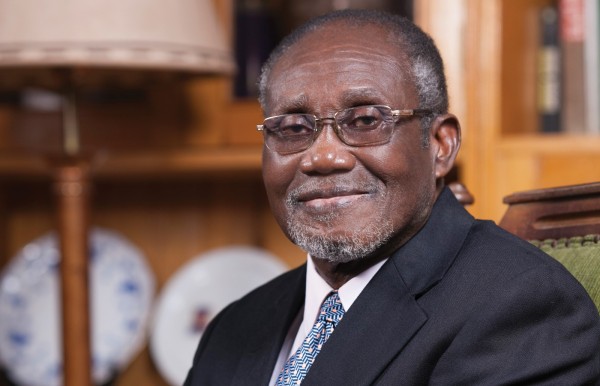Obed Asamoah caused $4.9m financial loss to the state – Judgment Debt report
- Posted on
- Comment
 Judgement Debt Commissioner Justice Yaw Appau is accusing former Attorney General in the Rawlings regime Dr. Yao Obed Asamoah, of causing financial loss to the state to the tune of over 4 million US Dollars.
Judgement Debt Commissioner Justice Yaw Appau is accusing former Attorney General in the Rawlings regime Dr. Yao Obed Asamoah, of causing financial loss to the state to the tune of over 4 million US Dollars.
A copy of the commission’s report intercepted by Joy News claims the former chairman of the National Democratic Congress caused government to pay the additional 4.9 million US Dollars on a judgement debt of just 2 million Ghana cedis, which the commissioner finds untenable.
The facts of the case are that in 1997, the Ministry of Food and Agriculture entered into a contract with Delta Foods Limited to supply the country with 21,000 tons of American white maize to mitigate anticipated food shortages. Government could not pay the amount and the company filed a suit in the High Court.
The Attorney-General admitted liability for which a consent judgment was entered in favour of the plaintiff based on terms of settlement filed by the parties.
By the terms of settlement, government was to pay to Delta Foods 2.03 million Ghana Cedis.
According to the commission, after several demands for payment had failed, the company on 28th December 1998 notified government of its intention to file a suit in the United States for the recognition and enforcement of the consent judgment obtained in Ghana. Upon receiving this notice, the Attorney-General through the then Solicitor General, Mr. E. A. Addo, wrote to the attorney of Delta Foods, assuring him that the country was experiencing budgetary constraints and that the judgment debt would be paid in early 1999 after the new Budget had been read.
Some days after addressing the assurance letter to Plaintiff’s attorney, the same Attorney-General filed a certiorari application before the Supreme Court seeking to quash the consent judgment that the Plaintiff had obtained in the High Court on grounds of nullity. The main consideration was that Plaintiff should have sued the Attorney-General but not the Minister of Agriculture. The Supreme Court, on 3rd March 1999, unanimously dismissed the certiorari application.
The U.S. District Court of Washington D.C. also ordered the government to make good its indebtedness to Delta Foods. The dollar equivalent of the judgment debt of 20.3 billion old cedis (2.03 million Ghana cedis) at the time the matter went before the U.S. District Court was US$8, 526,000.
The US Court ordered the Government of Ghana to pay that amount plus pre and post-judgment interests of US$648,005 and US$606.01 per diem respectively. Government paid the amount of 20.3 billion old cedis (or 2.03 million Ghana cedis) to the company in March 2000.
But on 10th January, 2001 (i.e. three days after the new Government had assumed the reigns of political authority), Delta Foods wrote to government again demanding an additional US$4.6 million. They claimed that interest had accrued on the paid amount between 24th November, 1999 when the money was paid, and 15th March 2000 when the money was eventually credited to their accounts. They also claimed the cedis had depreciated over the period between when the judgement was delivered and when the money was paid, and government needed to pay the difference.
An amount of US$4.9 million was eventually paid to the company as the remaining balance of the judgment debt plus interest aside of the 20.3 billion old cedis already paid in April 2002. This, the commission criticizes.
“The major finding of this Commission was that, as a result of the improper or wrong decision of the office of the Attorney-General to further drag the matter to the Supreme Court on a mere technicality after it had admitted unequivocally the indebtedness of the Government of Ghana to Delta Foods Ltd, culminating in the consent judgment of 8th September 1998, the Government of Ghana was burdened with an additional payment of US$4.9 million aside of the judgment debt of 20.3 billion old cedis. This constituted a huge financial loss to the State,” the commission’s report said.
“I do not fathom how the Attorney-General, after participating fully in the trial and submitting to judgment, could turn round to pray for the quashing of the very judgment he contributed in arriving at, on the basis of a mere technicality that in all respects, did not go to the roots of the matter in issue,” the Commissioner said.
“By that singular act, the Attorney-General, particularly the Solicitor General, did not exhibit candour and good faith to the plaintiff and the trial court that heard the matter; the result of which was the colossal sum of US$4.9 million which the State was made to cough out in addition to the original debt of 20.3 billion cedis,” the report said.
Dr. Obed Asamoah, has however told Joy News he will only respond to the findings when government officially releases a white paper on the Commission’s report.
By: Joseph Opoku Gakpo







 (Selorm) |
(Selorm) |  (Nana Kwesi)
(Nana Kwesi)